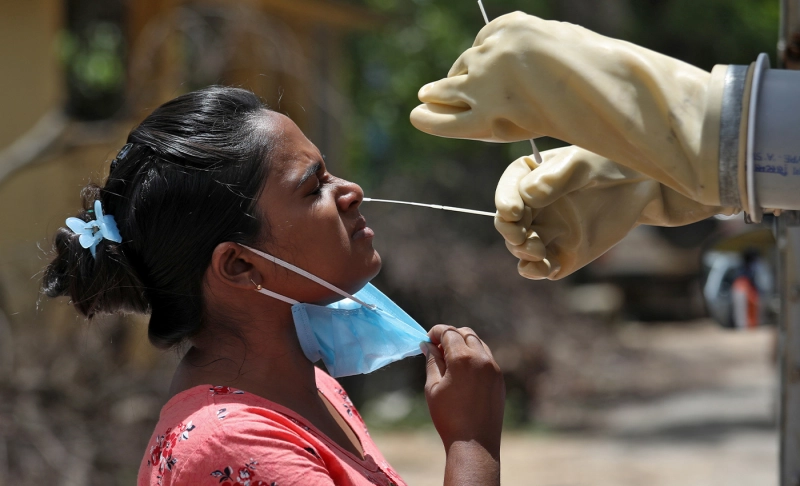By: Shashi M
April 29 2021

In Haridwar, 2,167 people have tested positive for COVID-19 in five days from April 10 to 15. The city saw a steep rise in cases during Kumbh Mela.
In Haridwar, 2,167 people have tested positive for COVID-19 in five days from April 10 to 15. The city saw a steep rise in cases during Kumbh Mela.According to the COVID-19 Health Bulletin released by the Uttarakhand State Control Room, on April 10, there were 254 COVID-19 positive incidents, 386 cases on April 11, 408 cases on April 12 whereas 594 cases on April 13, and 525 cases on April 14. Within five days, 2,167 people tested positive for COVID-19 in Haridwar, the location of the month-long Kumbh Mela. There have been concerns that one of the world's largest religious gatherings could be contributing to the rapid increase in infections. The Mela area covers over 670 hectares, including Haridwar, Tehri, Dehradun, and Rishikesh. Hindustan Times reports that Haridwar's Chief Medical Officer Shambhu Kumar Jha said that the COVID-19 reports include RT-PCR and Rapid Antigen Test of devotees and seers from different groups for the five days extending from Haridwar to Devprayag. He added that still RT-PCR test reports were pending as of April 15, and the trend suggested that the infected persons in the religious event could rise to 2000. HT reports that 48.51 lakhs people took part in the royal baths or locally called shahi snan on April 12 and Mesh Sankranti on April 14. On these occasions, COVID-19 norms were violated by not wearing masks and not following social distancing. India Today reports that many states have imposed night curfew, weekend curfew, and other restrictions to cut down the chain of infection. There is a shortage of COVID-19 vaccines, hospital beds, and Oxygen to many states. Experts have warned Kumbh Mela's large gatherings amid the pandemic may prove catastrophic and might spread the cases to other states. All religious peers attending the Mela are from different states, reports India Today. The COVID-19 pandemic has given rise to a lot of potentially dangerous misinformation. For reliable advice on COVID-19 including symptoms, prevention and available treatment, please refer to the World Health Organisation or your national healthcare authority.